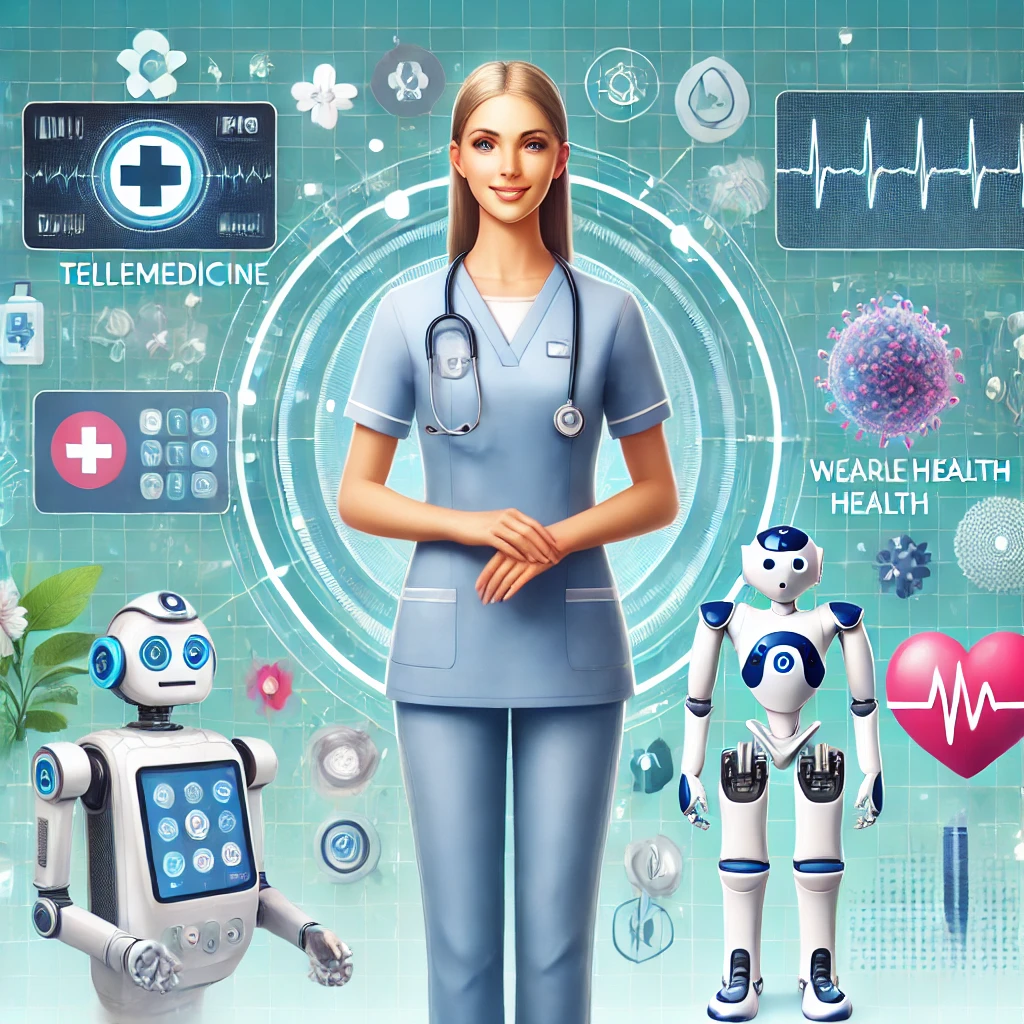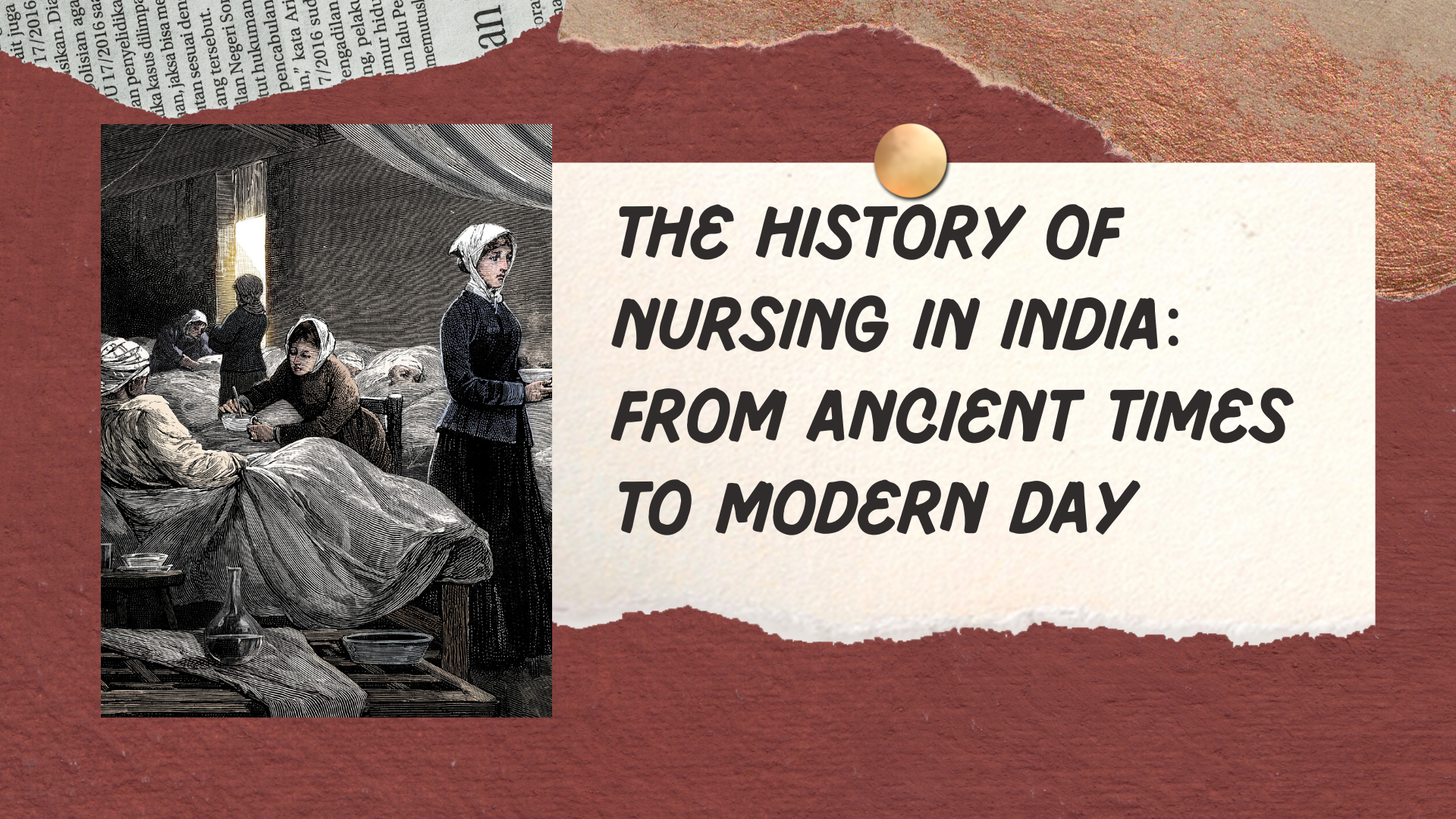Introduction: A Life Saved by Technology
Thank you for reading this post, don't forget to subscribe!
It was a bustling night in the emergency room, and Sarah, a newly minted nurse, was called to assist with a critical case. The patient, a 45-year-old man, was unresponsive, his vitals dangerously unstable. Amid the chaos, Sarah activated a portable ultrasound device to assess the patient’s condition swiftly. Within moments, the medical team identified internal bleeding and acted decisively, saving his life. This experience underscored for Sarah the power of healthcare innovations—tools that are transforming the way nurses deliver care every day.
As a nursing student or professional, staying updated on the latest advancements isn’t just beneficial—it’s essential. In this article, we explore some groundbreaking healthcare innovations that are revolutionizing the industry and how they empower nurses to improve patient outcomes.


1. Telemedicine and Remote Monitoring
The COVID-19 pandemic accelerated the adoption of telemedicine, making it a cornerstone of modern healthcare. Nurses are now integral to virtual consultations, educating patients on managing chronic conditions from the comfort of their homes.
- Example: Remote monitoring devices, like wearable heart monitors, provide real-time data, enabling nurses to detect abnormalities and intervene early. According to a report by McKinsey, telehealth utilization has stabilized at 38 times higher than pre-pandemic levels.
- Impact: This innovation allows nurses to expand their reach, offering care to patients in rural or underserved areas, reducing the strain on hospitals, and improving patient compliance with treatment plans.
2. Artificial Intelligence in Diagnostics
AI is no longer a futuristic concept; it’s actively aiding nurses in diagnosing and prioritizing care. Algorithms analyze medical records and imaging faster and more accurately than ever before.
- Example: AI-powered tools like predictive analytics can flag high-risk patients. A study in JAMA found that AI reduced diagnostic errors in radiology by 30%.
- Impact: With AI, nurses can anticipate potential complications and allocate resources effectively, ensuring timely and precise care for their patients.
3. Smart Wearables
From smartwatches that monitor blood pressure to biosensors tracking hydration levels, wearable technology has become a game-changer in healthcare.
- Example: Nurses can use these devices to monitor patients remotely, ensuring timely interventions. The global wearables market is projected to reach $118 billion by 2028, reflecting its growing importance.
- Impact: These tools empower nurses to provide proactive care, significantly reducing hospital readmissions and improving patient quality of life.
4. 3D Printing in Healthcare
3D printing is revolutionizing personalized medicine, offering customized prosthetics, implants, and even surgical tools.
- Example: Nurses assisting in wound care can use 3D-printed skin grafts tailored to individual patients. According to the FDA, this technology has drastically reduced recovery times for burn victims.
- Impact: This innovation allows nurses to be part of a patient-centered care model, tailoring treatments to individual needs and improving recovery outcomes.
5. Robotic Assistance
Robots in healthcare are more than a novelty; they’re indispensable partners in patient care.
- Example: Robots assist nurses in lifting patients, reducing physical strain, and ensuring proper hygiene. A study by the International Journal of Nursing Studies found that robotic assistance reduced nurse injuries by 25%.
- Impact: Robotic assistance frees up nurses’ time to focus on more complex care tasks, improving job satisfaction and reducing burnout.
6. Electronic Health Records (EHRs) and Interoperability
EHR systems have streamlined patient data management, making information accessible across departments and facilities.
- Example: Nurses can quickly retrieve a patient’s medical history, allergies, and lab results in real-time. Interoperable systems allow seamless communication between healthcare providers.
- Impact: EHRs reduce documentation errors, enhance communication, and improve care coordination, enabling nurses to deliver more accurate and efficient care.
7. Precision Medicine
Precision medicine uses genetic profiling to tailor treatments to individual patients.
- Example: Nurses working with oncology patients can use precision medicine to administer targeted therapies, minimizing side effects and maximizing effectiveness.
- Impact: This approach empowers nurses to play a crucial role in personalized care plans, improving patient outcomes in conditions like cancer and rare genetic disorders.
8. Mobile Health Apps
Mobile apps designed for healthcare are empowering both patients and nurses.
- Example: Apps like Medscape and Epocrates provide nurses with instant access to drug interactions, dosage calculators, and clinical guidelines.
- Impact: These tools enhance nurses’ decision-making capabilities, ensuring they deliver evidence-based care in real-time.
How Nursing Expert Supports Nurses
At Nursing Expert, we understand the challenges of navigating these advancements. Our platform offers comprehensive guides, resources, and tips tailored for nursing students and professionals. Whether you’re exploring telemedicine tools or mastering the use of smart wearables, Nursing Expert is here to support your journey in staying ahead of the curve.
Additionally, Nursing Expert provides curated articles, practical tutorials, and expert advice to help nurses integrate these innovations into their daily practice. With a focus on empowering the nursing community, our mission is to bridge the gap between technology and compassionate care.
Conclusion: Embracing the Future of Nursing
The landscape of healthcare is evolving at an unprecedented pace, and innovations like telemedicine, AI, and 3D printing are reshaping the nursing profession. These advancements not only improve patient care but also empower nurses to work smarter and more efficiently. By staying informed and embracing these technologies, nurses can continue to provide the best possible care.
What healthcare innovation excites you the most, and how do you see it shaping your nursing career?
FAQs Section
What are healthcare innovations in nursing?
Healthcare innovations in nursing include advancements in technology, equipment, and processes that improve patient care and enhance the efficiency of nursing practices. Examples include telemedicine, AI tools, and wearable health devices.
Why is it important for nurses to stay updated on healthcare innovations?
Staying updated ensures nurses can provide the best possible care, improve patient outcomes, and adapt to the rapidly changing healthcare landscape.
How does telemedicine benefit nurses?
Telemedicine allows nurses to monitor patients remotely, offer virtual consultations, and provide care to underserved areas, reducing hospital strain and improving accessibility.
What is the role of AI in nursing?
AI aids nurses by analyzing medical data, predicting patient complications, and streamlining diagnostic processes, enabling more accurate and timely interventions.
How can Nursing Expert help with learning about healthcare innovations?
Nursing Expert offers resources, guides, and practical advice for nursing students and professionals to integrate new technologies into their daily practices.


